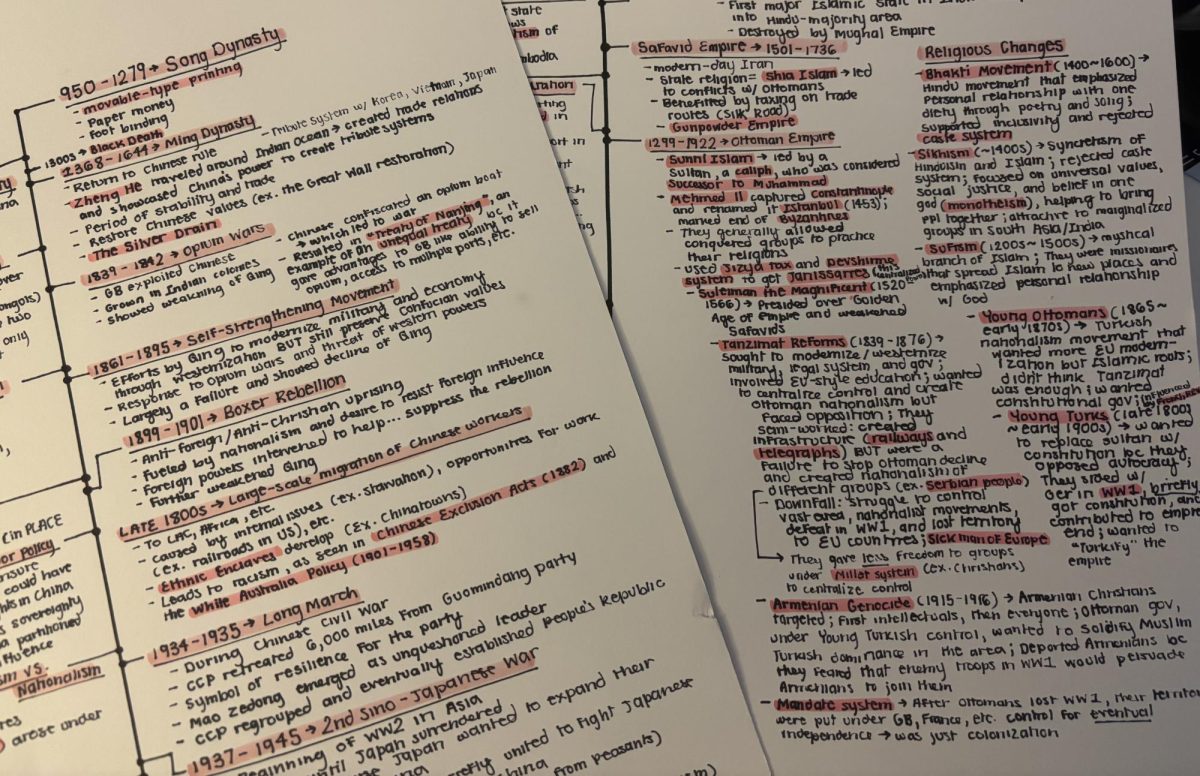This review contains spoilers for the film A Real Pain.
American movies about Europe are often one of two extremes: an absolutely devastating war trauma or a modern, light, and dreamy summer fantasy. However, Jesse Eisenberg’s 2024 dramedy A Real Pain creates a bittersweet blend of both this idealism and pain.
The film begins with the frantic arrival of David Kaplan, played by Eisenberg himself, at the airport, where he meets his travel buddy and cousin, Benji Kaplan (Kieran Culkin). From there, the two fly to Poland to tour where their recently deceased grandmother grew up. They join a handful of others to see historic landmarks, eventually breaking off on their own to visit their grandmother’s home. Because of this, the movie’s structure is essentially a build-up to seeing the home, the final culmination of their travels.
From the first scenes, David and Benji are established as opposites, serving as foils to one another. Where David is a bit awkward, quiet-natured, and straightforward, Benji is outgoing, charismatic, and spontaneous. As the audience gets to know the two, they are simultaneously reacquainting with one another. Despite having a shared childhood, adulthood has created both a geographical and mental divide. It becomes increasingly clear that, while David is satisfied with his new life, Benji is hurt that his cousin has “left him behind.” David has a successful career, a wife, and a child in New York City. By contrast, Benji lives outside of the city in Birmingham, New York, aimless and lacking direction.
At the beginning of the movie, Benji’s conduct is generally painful to watch. His blunt dialogue and impulsive actions—especially toward the other tour members who are strangers to him—are plainly awkward for any bystander to witness. Despite this, the more the audience learns about Benji, the more his personality can be seen as loveably unique. He influences his fellow tour members to essentially feel their emotions in a fuller way. For example, when they visit a giant monument of Polish war heroes, he convinces his new friends to stage a fight scene, as if they were in the war themselves. His infectious liveliness adds an essential element of spirit to the story. Without Benji, the plot would simply fall flat, destined for mediocrity.
While most of the characters in the film are affected by Benji, the most important of these is, by far, David. Although the film’s initial focus is on coping with the death of a loved one, it becomes apparent that the true message lies within the relationship between the two main characters. Benji slowly makes cracks in David’s relatively uptight and organized disposition. Audiences see David loosen up and enjoy life in the moment with Benji’s encouragement. On the other side of things, it becomes clear that David cares deeply about his cousin. Because Benji overdosed six months ago, David wants to ensure that his cousin is okay, as he is scared that Benji will attempt to end his life for a second time. As David confesses this to Benji, viewers can see their relationship mending through the intensely vulnerable conversation.
In an interview with Classic FM, Eisenberg stated that he wanted the film to feel accessible and inviting to any viewer. Throughout the movie, the plot naturally gains complexity, but it maintains a straightforward storyline and never reaches a point of confusion for audiences. This goal is accomplished further through the soundtrack, as the score consists solely of music by the Polish composer Frédéric Chopin. Eisenberg, though not knowing much about classical music, chose Chopin because his compositions are familiar to audiences and establish a general feeling of ease. In contrast with the many modern and/or pop soundtracks of new films, A Real Pain’s score is refreshing.
The movie ends at the airport when the cousins return to the United States. Since this is where the story begins as well, the movie comes full circle, emphasizing how the men have changed on their trip. This makes the film clear-cut and focused on the characters’ journey, not their lives outside of Poland. This structural choice adds to the impactfulness of the film, honing in on this experience and its specific impact. However, in doing so, Benji’s future is left up to interpretation. The audience can merely hope that he finds structure and happiness in his life.
Viewers shouldn’t be dissuaded by the fact that the plot of A Real Pain can come off as rudimentary on first impression. In the end, it’s about much more than two average-looking men and a trip to Europe. The movie draws the audience in, evoking empathy and care for the two quirky cousins. As the title suggests, the film includes more than it seems on a surface level. While it retains lighthearted moments of Benji being “a real pain,” it simultaneously addresses the “real pain” that the two have endured together.



























































































